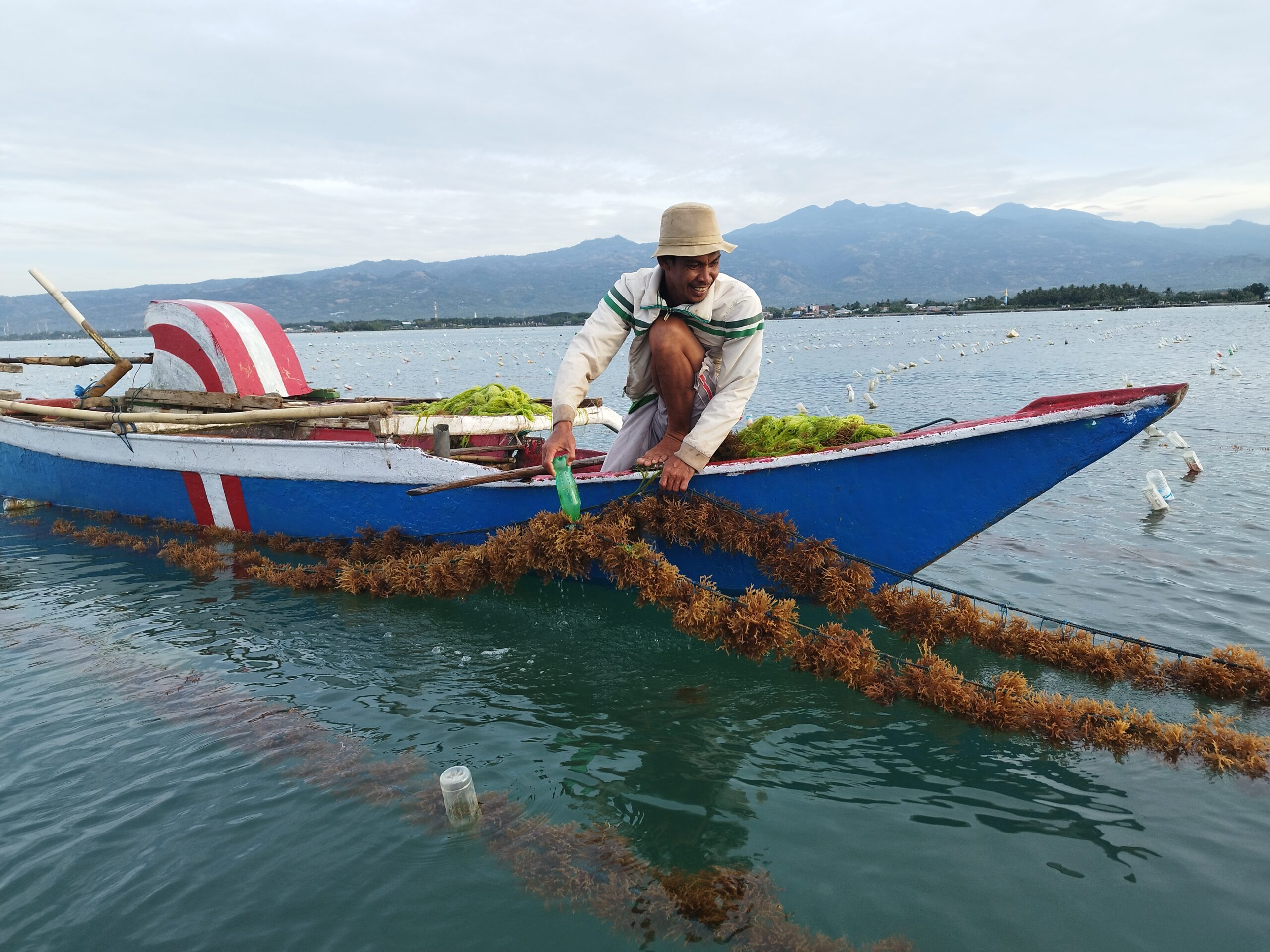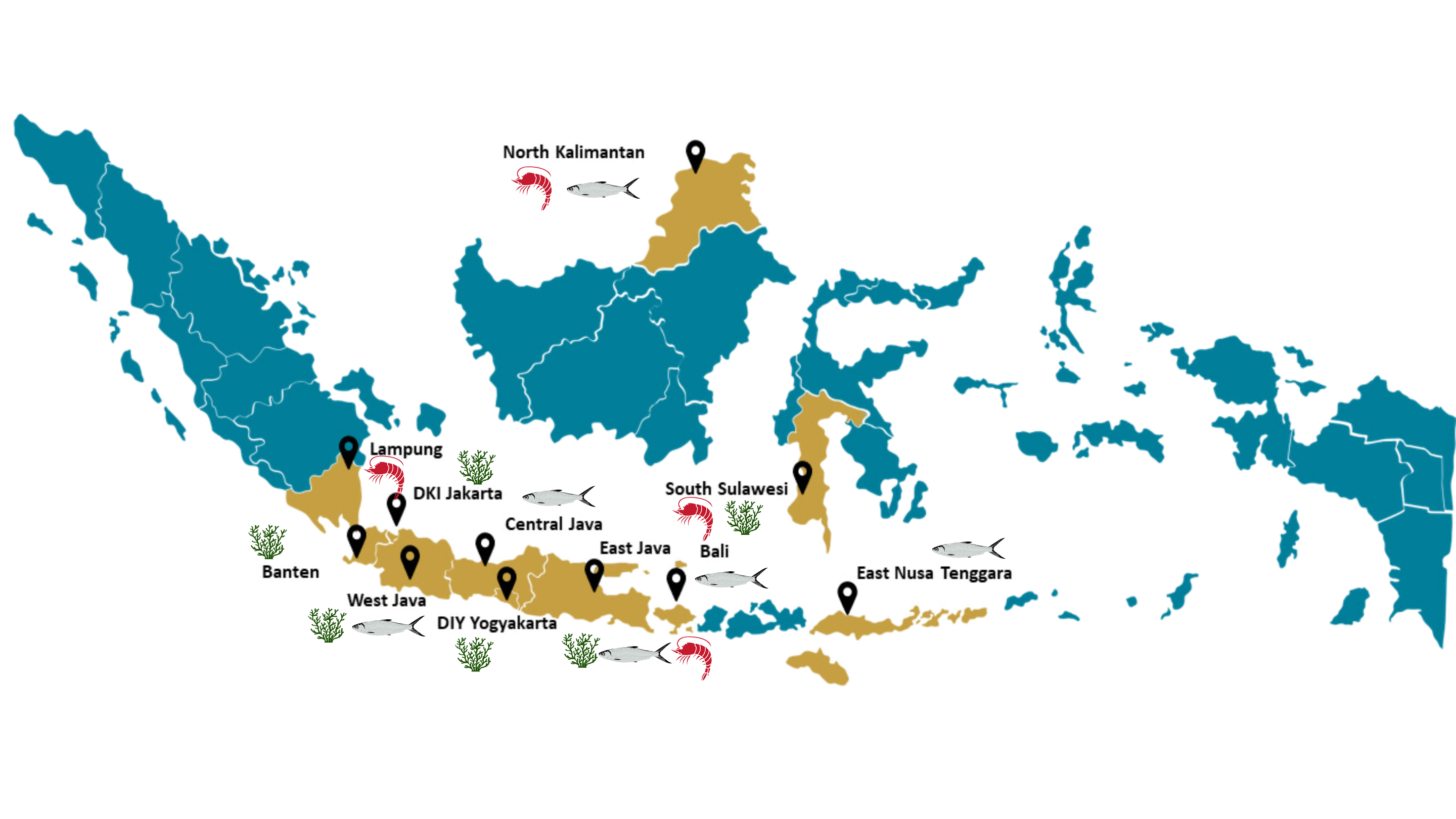
The overall objective of the programme is to enhance the competitiveness and sustainability of the Indonesian selected aquaculture value chains through innovation, diversification, quality improvement, and standards compliance for livelihood improvement. The approaches involve strengthening quality infrastructure and services providers, enhancing the compliance capacity of SMEs of the selected value chains and raising a culture of quality among all stakeholders. Traditional plus shrimp farming polycultured with milkfish, piloting of integrated shrimp-mangrove traditional farming, and new seaweed species such as Ulva and Caulerpa would be the focuses of the programme.
For further details: www.gqspindonesia.org

Around 80% of the shrimp farming ponds in Indonesia is traditional farming with limited production inputs and highly dependent on natural resources. Hence the productivity of such farms is very low, contributing only less than 20% of the country shrimp production. Under this background GQSP Indonesia phase 2 focuses to improve the productivity and sustainability of traditional shrimp farming - ultimately improving the livelihoods of small holders and coastal communities. Shrimp harvested from traditional farms can potentially also be promoted and certified as eco-friendly and organic products to obtain premium prices in the global markets. In addition to shrimp, the programme also focuses on new seaweed species that contribute not only to improve livelihood and resilience of coastal communities but also the new species can potentially contribute to climate change adaption and mitigation.
